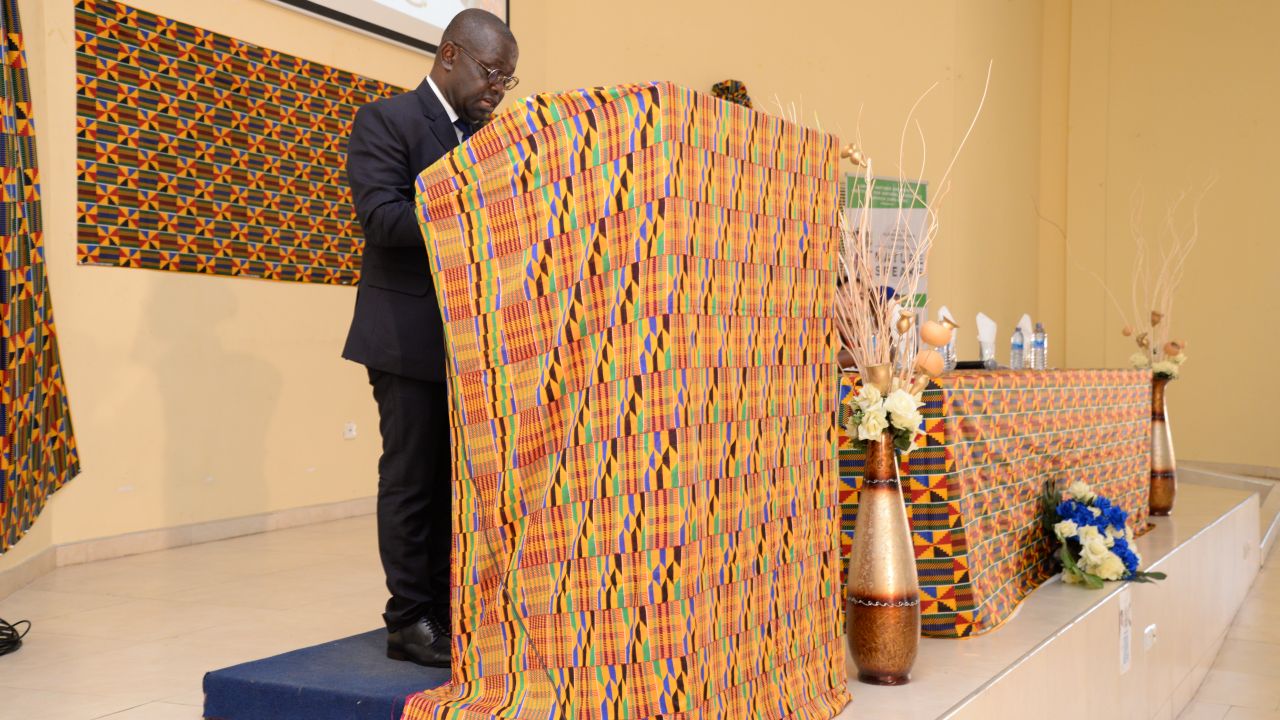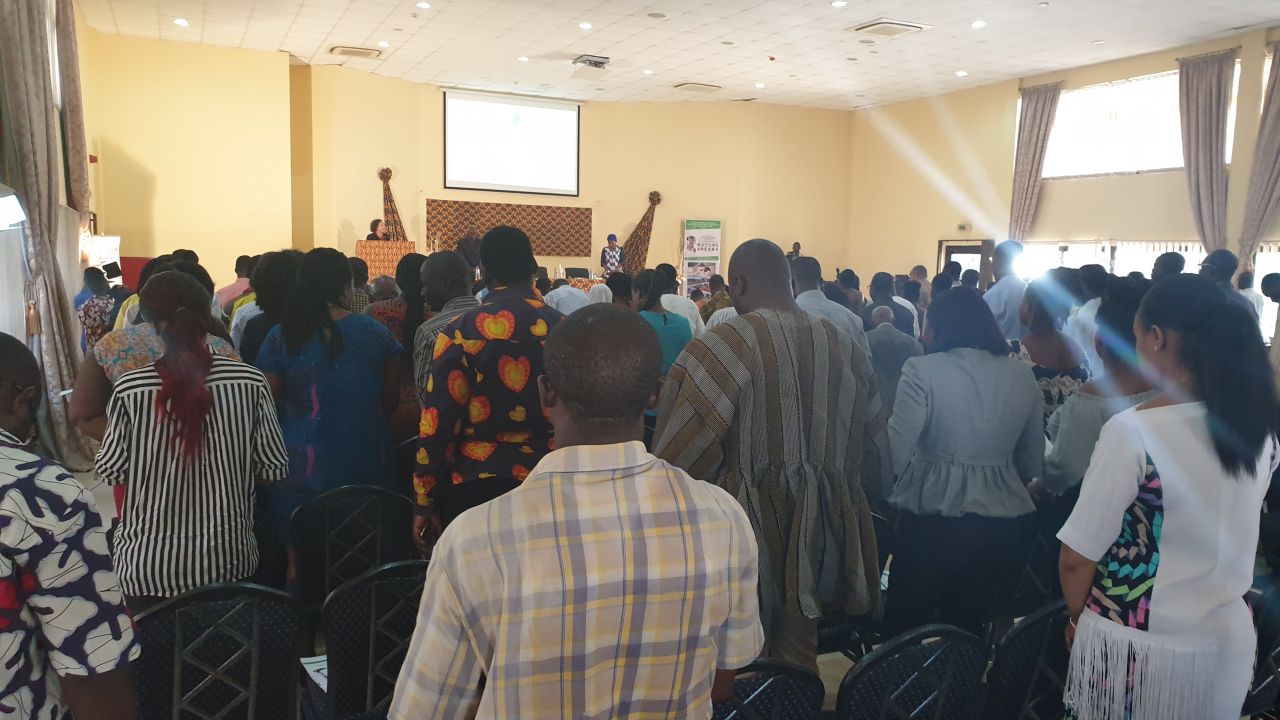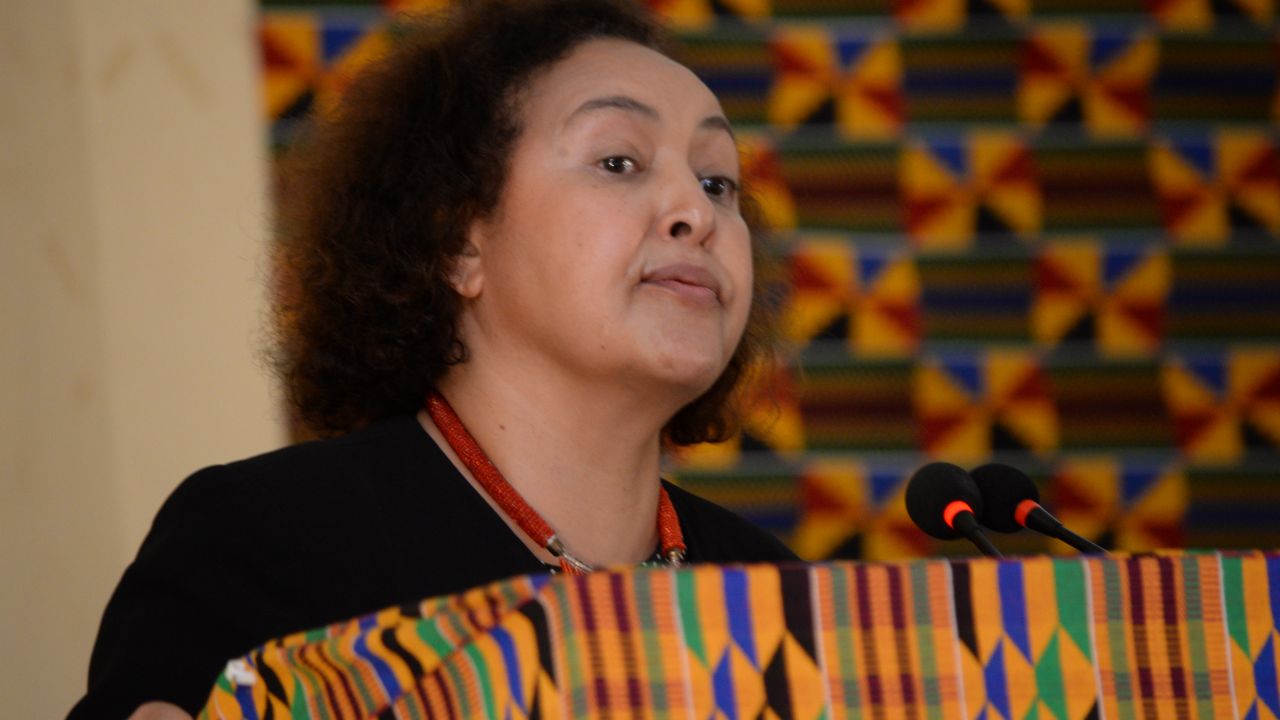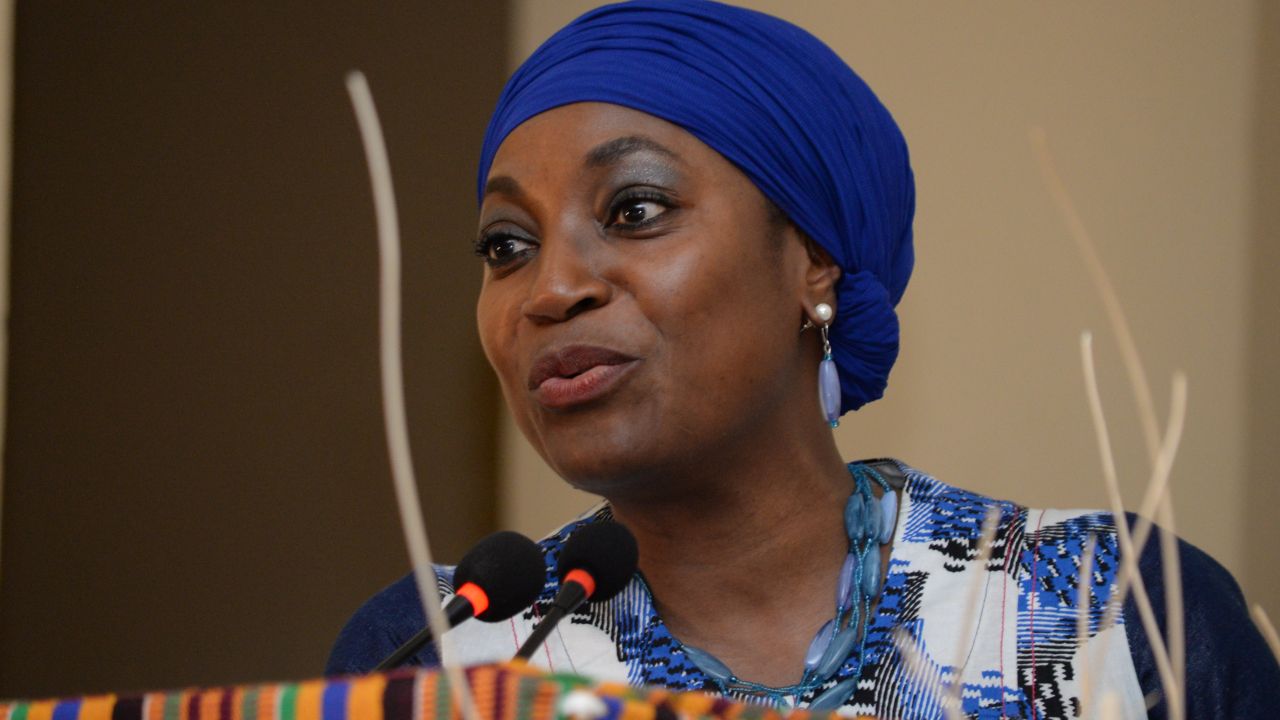Professor Alexander A. Kwapong Lectures: inaugural lecture imparts impetus for innovation-driven growth in Africa
-
May 6, 2019 Accra
“We have everything to succeed in the fourth industrial revolution, so let’s just do it” – one of the key messages by Dr Frannie Leautier in her bold and inspiring lecture at the inaugural session of the Professor Alexander Kwapong Lectures: Nature Speaks.
On 25 April 2019, Dr Frannie Leautier delivered the inaugural Professor Alexander Adum Kwapong Lecture to a packed hall at the ISSER Conference Centre at the University of Ghana.
Speaking on the topic “Innovation, Infrastructure, Technology and the promise of new growth for natural resource management in Africa. Blind alleys or transformational change? she examined how Africa can leverage innovation, infrastructure and technology to raise production and accelerate development in Africa.
Dr Leautier started by outlining key theories and principles which would serve as foundation for her presentation. Then, she took her audience on a journey through the unique advantages of the African region, advantages that could and should be leveraged by African countries themselves to accelerate development. These include: a youthful population of creative and culturally diverse people; Africa as an attractive investment destination with huge foreign direct investment inflows; fastest growing continent with a high urbanization pace (52 cities with over 1 million inhabitants as Europe); one billion consumers (nearly half of whom are middle class); and a vibrant SME sector (providing over 90% of jobs). Other advantages include a rare earth rich in natural resources including cobalt and lithium (considered the minerals of the future) and rare, fresh water sources and forests.
She highlighted some elements critical for success in the fourth industrial revolution (which is said to have started in 2015). These include: people, creativity of people, critical thinking, science, innovation and technology.
She noted that Africa has many human beings (soon to be two billion), it has very creative people, rich cultures and the rare earths needed to drive these economies. “So, we can ride this wave [fourth industrial revolution] using those values,” she added.
Dr Leautier, however, noted that for African countries to run together successfully in the fourth industrial revolution, certain investments need to be made. “To perform, we need to do things differently.” First, we have to change our mindset. This should be complemented by intentional investments in certain areas, including: data, formal and informal skills, governance across borders and innovative finance.
In one of the several can-do statements that characterized the lecture: Dr Leautier said “Even within Africa, there can be very forward-thinking innovation that allows us to deal with this challenge that nature is a source and not a resource.” This she backed with constructive examples of an African SME (Majik) that was extracting water from air and innovative blockchain agriculture solutions being piloted in Nigeria.
She concluded by noting that there is opportunity for Africa to decarbonize, build unique partnerships and lead from behind: “…we can start small, we can go from start-up to scale up, we can do it through value chains and corridors that link countries one to the other…”
Leaving the stage with perhaps the most powerful quote yet, Dr Leautier urged Africa to do its best in order to make success in the fourth industrial revolution a possibility. She stated: “You must accept that you might fail; then, if you do your best and still don’t win, at least you can be satisfied that you’ve tried. If you don’t accept failure as a possibility, you don’t try—you don’t win.”
Ahead of Dr Leautier’s delivery, Professor Ebenezer Oduro Owusu, Vice Chancellor of the University of Ghana, welcomed participants and noted that: “Through the lecture series, the University of Ghana and UNU-INRA will work in tandem to host some of the best scientists and decision makers from around the world to escalate the process of utilizing scientific knowledge and technology to advance sustainable growth and development in Africa.”

Professor Ebenezer Oduro Owusu, Vice Chancellor of the University of Ghana delivers his welcome statement
Madam Patricia Appiagyei, Deputy Minister of the Ministry of Environment, Science Technology and Innovation (MESTI), congratulated UNU-INRA and the University of Ghana for organizing the lecture series.
“I believe that such lectures will provide the platform for relevant stakeholders and partners to not only dissect and interrogate key development agendas, programmes, policies and strategies, but also forge important partnerships and collaborations that will foster the development of cutting-edge ideas and innovative policy outcomes…” she said.
Madam Opokua Kwapong, one of the six daughters of the late Professor Alexander Kwapong who spoke on behalf of the family, expressed gratitude to the University of Ghana and UNU-INRA for honouring their father. “The decision to hold this lecture series is about delivering the capacity and the leverage for science…I appreciate the importance of this in shaping the future…” she added.
In her vote of thanks, Dr Fatima Denton, Director of UNU-INRA thanked the Kwapong family and the University of Ghana for supporting the Professor Alexander Adum Kwapong Lecture Series initiative.
Similar to speakers before her, she eulogized the late Professor Kwapong, and said: “My hope is that with this lecture the Kwapong family will be comforted over the passing of their mother and father, and that this lecture series will outlive the institutions that introduced it,” Dr Denton stated.
She commended Dr. Leautier on a hopeful lecture that demonstrated equally Professor Kwapong’s belief in an Africa of plenty, a frontier region – and Africa whose development potential is not foreclosed, not least as a result of its human capital.
The event was moderated by Ghana’s award-wining journalist Bernard Avle and was attended by scores of participants including heads of UN agencies in Ghana, members of the diplomatic corps, representatives from government ministries, private sector, research institutes and academia.

Ahead of the lecture, participants observe a minute’s silence in honour of the late Professor Kwapong and his wife
The Professor Alexander Adum Kwapong Lectures: Nature Speaks will be held once every quarter at the University of Ghana. Selected photos from the inaugural event available here
###

